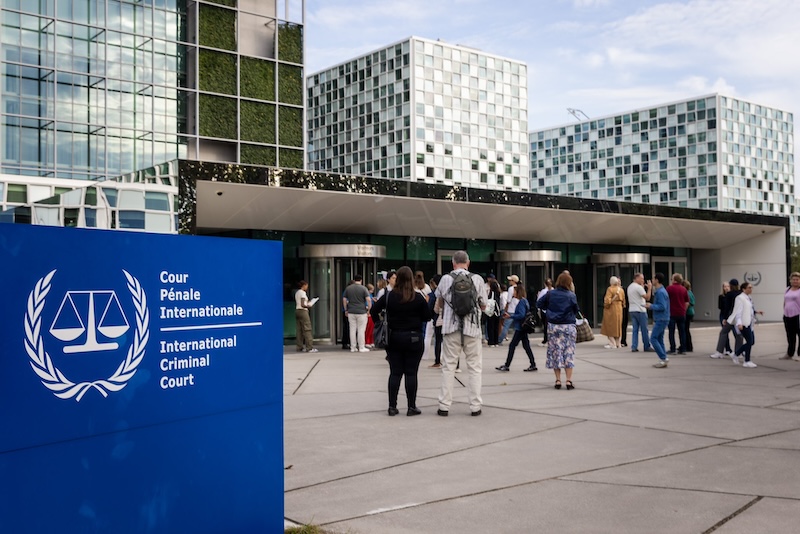Australia’s Special Advisor to the International Criminal Court was given $50k for war crimes advice “settled” by the Attorney-General and Foreign Affairs officials. Stuart McCarthy investigates the conflict of interest.
A new scandal has emerged over the government’s failure to hold Australia’s top generals to account for high-level command failures in Afghanistan, mere weeks after Defence Minister Richard Marles “closed out” the government’s response to the 2020 Brereton report on alleged SAS war crimes.
The Australian Office of the Special Investigator (OSI) awarded war crimes academic Professor Tim McCormack a “limited tender” contract in 2022 for legal services on the condition his advice was “settled in consultation with” officials from the Attorney-General’s and Foreign Affairs departments.
OSI is the “independent” law enforcement agency established in the Attorney-General’s portfolio in January 2021 to investigate alleged war crimes by Australian special forces troops in Afghanistan. McCormack, a Professor of International Law at the University of Tasmania, is also Special Advisor to the International Criminal Court (ICC) Prosecutor in The Hague, a role that includes providing advice on command responsibility for war crimes.
Documents obtained under freedom of information (FOI) by the administrator of the @musoriandigger2.0 social media account show McCormack was engaged by the OSI initially in mid-2021 for training in international humanitarian law, then in a 12-month contract for the provision of legal advice beginning in mid-2022. The value of the contract is redacted from the FOI documents, but the publicly available contract notice shows it was worth $52,800. A condition of the contract for McCormack’s legal advice to OSI was :
“The advice must be settled in consultation with, and reflect any comments made by, a tied third provider. Under Appendix A to the Legal Services Directions 2017, the Office of International Law in the Attorney-General’s Department, the Australian Government Solicitor and the Department of Foreign Affairs and Trade (excluding matters involving domestic litigation involving a significant public international law issue) are tied providers for public international law work.”
Office of Special Inactivity
The OSI’s inaction on command responsibility provided the trigger for Tasmanian Senator and former soldier Jacqui Lambie’s referral of some of Australia’s top generals to the ICC last year.
Emails between McCormack and OSI officials prior to signing the contract do show McCormack declared his conflict of interest with the ICC to OSI officials, who included a “conflict of interest management plan” in the contract, but key details of that plan are redacted on the grounds their disclosure could “cause damage to the international relations of the Commonwealth.”
The redactions also beg the question as to how effectively McCormack’s clear conflicts of interest were actually managed, beyond simply “declaring” them.
Australia’s Afghanistan war crimes a serious challenge for Albanese government
In essence, an Australian law enforcement agency whose inaction in pursuing Australian generals for command responsibility for war crimes provided the trigger for a referral to the ICC has paid for advice from an expert advisor to the ICC on the condition his advice was pre-vetted by an Australian government also under heavy criticism for its inaction in holding Australian generals to account.
McCormack’s contract and conflicts of interest have reignited anger from veterans over what many see as double standards and a culture of impunity among Australia’s top brass. The November 2020 report from Major General Paul Brereton’s four-year Afghanistan inquiry recommended criminal proceedings against 19 special forces soldiers up to the rank of Sergeant for serious misconduct, including alleged murder, but found senior officers from Major General and above,
did not have a sufficient degree of command and control to attract the principle of command responsibility.
In the service of distinguished cushiness
Administrators of the @musoriandigger2.0 account told MWM:
“From [former Defence chief] Angus Campbell reviewing honours and awards given during the time he was the commander of all Australian forces in the Middle East, to Defence Secretary Moriarty creating a new job for Kathryn Campbell in AUKUS, to the Paul Brereton led NACC deciding not to prosecute her over Robodebt, and now this.”
The award of the Distinguished Service Cross to Campbell and others for “command and leadership in action” is already the subject of a Senate inquiry into the integrity of the Defence honours and awards system.
Marles announced two weeks ago that he had “closed out” the government’s implementation of Brereton’s recommendations “to the letter” by stripping distinguished service decorations from up to nine current or former officers from Captain to Lieutenant Colonel rank who served in Australia’s Special Operations Task Group (SOTG) on the ground in Afghanistan, during the period where Brereton found credible evidence dozens of crimes had taken place including the killing of civilians or detainees.
Brereton’s inquiry was conducted under the auspices of the Inspector-General of the Australian Defence Force (IGADF), which many defence personnel regard as “a cover-up shop for the generals.” IGADF uses an administrative law framework which the recently concluded Defence and Veteran Suicide Royal Commission (DVSRC) found was “weaponised” against complainants, witnesses and the next-of-kin of defence personnel.
Royal Commission into Veteran Suicide confronts lawfare, cronyism and a bureaucratic nightmare
Indecent suppression obsession
The DVSRC also recently published a controversial 20-year review into the IGADF as an exhibit on its website. Suppressed by Marles for six months until attempts were made by Senators to table the review in Parliament last week, the report was deleted from the DVSRC website by a government official purporting to have the authority of the DVSRC. The suppression drew criticism from Lambie of “a toxic, cover-up culture” in the Albanese government.
The FOI documents from OSI also show McCormack offered to introduce OSI Special Investigator Mark Weinberg and Director-General Chris Moraitis to ICC Prosecutor Karim Khan, other ICC officials in The Hague and various high-level contacts in the UK.
McCormack’s contract with OSI has raised concerns over his possible involvement in advising Khan on his consideration of Lambie’s formal request last year for a preliminary examination into command responsibility for Australia’s most senior generals. He has not responded to our requests for comment.
In August last year, McCormack told a public lecture on the ICC and national responsibility for war crimes:
“Given my ongoing role as special Advisor on war crimes to the Prosecutor of the International Criminal Court … I obviously needed Karim Khan’s approval to provide some support to Mark Weinberg and the Office of the Special Investigator. I have Karim’s approval on the basis that if he decides he needs to investigate the conduct of coalition forces on Afghanistan at any stage in the future, I’ll have to recuse myself from any advice, and all the parties understand and accept that.”
MWM has also approached Khan’s office for comment on McCormack’s conflicts of interest and the progress of Lambie’s request for a preliminary examination.
Under Article 28 of the ICC’s Rome Statute, commanders can be held criminally liable for the actions of their troops if they knew or should have known war crimes were being committed but failed to take reasonable steps to prevent the commission of those crimes.
For those following (or covering) yesterday’s Kerr review into IGADF, this isn’t only about “military justice.” IGADF is also used as a political figleaf. See for example Stephen Smith boasting of his “confidence” in IGADF James Gaynor on the release of the IGADF Brereton report.… https://t.co/yAoQwWfKHI pic.twitter.com/aAr7a4Jzc7
— Stuart McCarthy (@StuartMcCarthy_) September 19, 2024
In September 2012, then Defence Chief General David Hurley and Defence Minister Stephen Smith were publicly informed of the apparent murders of civilians Haji Raz Mohammad and Abdul Jalil during an Australian SAS raid at Sola village, Afghanistan, but Smith told a national press conference that the two men were “confirmed as insurgents.”
Less that two weeks later, one of the soldiers involved in the alleged Sola killings was then involved in further alleged war crimes at Darwan village, including one of the notorious incidents dissected in last year’s ruling by Justice Anthony Besanko that dismissed former SAS soldier Ben Roberts-Smith’s defamation case against Nine Media.
Within hours of the Brereton report’s publication in November 2020 Smith – who became Australia’s High Commissioner to the UK in January 2023 – boasted on ABC Radio National:
“I was always confident in the run up to the report that there would be nothing that would indicate that either I or any of my ministerial colleagues of whatever political persuasion were ever alerted to anything which they should have taken any action on. [The report] makes it clear that the rumours started to emerge after the tempo had finished in about 2015-2016 …”
The war crimes command responsibility provisions of the Australian criminal code that provide the legal basis for OSI’s investigations require a higher “recklessness” standard of proof than the “knew or should have known” standard under the ICC’s article 28. A 2023 PhD thesis by former Army lawyer Dr Glenn Kolmeitz, who served in SOTG in 2009, found:
“This divergence establishes differing scopes of criminality which, in turn, adversely impacts the necessary coherence, credibility and legitimacy of the system of international criminal justice.”
Marles, Foreign Affairs Minister Penny Wong and Attorney-General Mark Dreyfus have not responded to MWM‘s requests for comment.
“But Now He’s Dead”: bittersweet reaction to Royal Commission into Veteran Suicide
Stuart McCarthy is a medically retired Australian Army officer whose 28-year military career included deployments to Afghanistan, Iraq, Africa, Indonesia and Papua New Guinea. Stuart is an advocate for veterans with brain injury, disabilities, drug trial subjects and abuse survivors. Twitter: @StuartMcCarthy_

